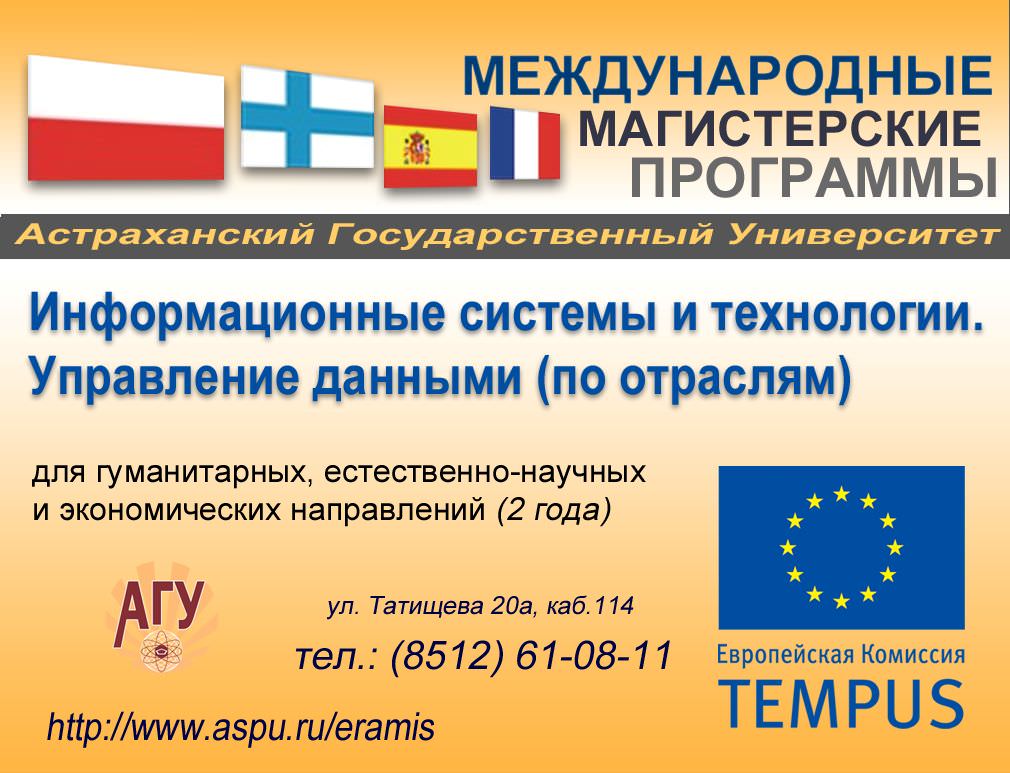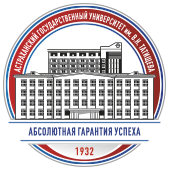Reseau Europe-Russie-Asie Centrale de Masters "Informatique Seconde Compétence" (ERAMIS)

The main idea of the TEMPUS ERAMIS project is to establish a chain of master programs in ICT as a second competence in Europe, Central Asia, and Russia; those programs would aim at specialists in social, exact, and engineering sciences. An acute need for a new generation of specialists capable of working in the present-day information society efficiently was manifested distinctly by universities of Russia, Kazakhstan, and Kirgizia. This field of activities is of top priority for the strategic development programs of our countries.
The idea is to provide people specializing in non-ICT spheres with a real opportunity to cover a program that makes it possible for them to master information technologies and programming languages efficiently. In this case, they could project, develop, implement, and maintain new software products. The program implies training of not just specialists in ICT, but training of versatile specialists who would be able to combine a good knowledge of engineering, Mathematics, Physics, or Economics with ICT competencies. It would help them implement “software of tomorrow” the best way possible, thereby contributing to social modernization.
The master program in ICT as a second competence was developed:
- at four Russian universities:
- Astrakhan State University;
- Voronezh State University;
- Kazan State University;
- Saratov Socio-Economic Institute of Plekhanov Russian University of Economics.
- at three universities of Kazakhstan:
- Al-Farabi Kazakh National University;
- Karaganda State Technical University;
- Innovative University of Eurasia.
- at two universities of Kirgizia:
- Kyrgyz National University;
- Kyrgyz State Technical University.
An agreed master program has been implemented at each of these universities; it includes a single set of basic courses, as well as various optional courses. The programs have been developed jointly with our European partners – Pierre Mendès-France University (Grenoble, France), the Technical University of Berlin (Germany), the Lublin University of Technology (Poland), the Savonia University of Applied Sciences (Kuopio, Finland), and the University of Alicante (Spain). The developed and implemented programs make up the ERAMIS chain.
At Astrakhan State University, this program is coordinated by Dr. Evgeniya Ishkina, ishkina@asu.edu.ru, +7-8512-61-08-11.
Why This Program Is Topical
Exchange and promotion of knowledge are necessary to stimulate the world progress and back developing countries. Information and communication technologies have changed citizens’ everyday lives and operation of companies and legal authorities completely. An acute need for qualified specialists capable of administering new systems and applying new products impacts the sphere of education.
Nowadays specialists of any sector ought to acquire additional competencies, in particular, in ICT, to be able to start or continue their professional activities and develop sustainably. Modernization of programs of higher education, in particular, by developing specific educational programs in applied ICT and other fields is the main element to meet the existing need for qualified specialists. Continued research within ICT is not sufficient; it is necessary to back penetration of ICT into other areas and apply them to meet social needs.
On the other hand, cooperation between universities and companies specializing in ICT is necessary to meet the demand of the labor market and use strategic advice given by real professionals.
Over the last years, systems of higher education in Russia, Kazakhstan, Kirgizia, and Europe have been reformed; in accordance with the Bologna Process, they are gradually forming the single space of higher education. Numerous international (first of all, European) projects have contributed to establishment of Russian, Kazakhstani, and Kyrgyz universities. It is crucial now to focus on specific areas (especially the ones that are of top priority for strategic development), which would contribute to establishment of a competitive cutting-edge higher education.




